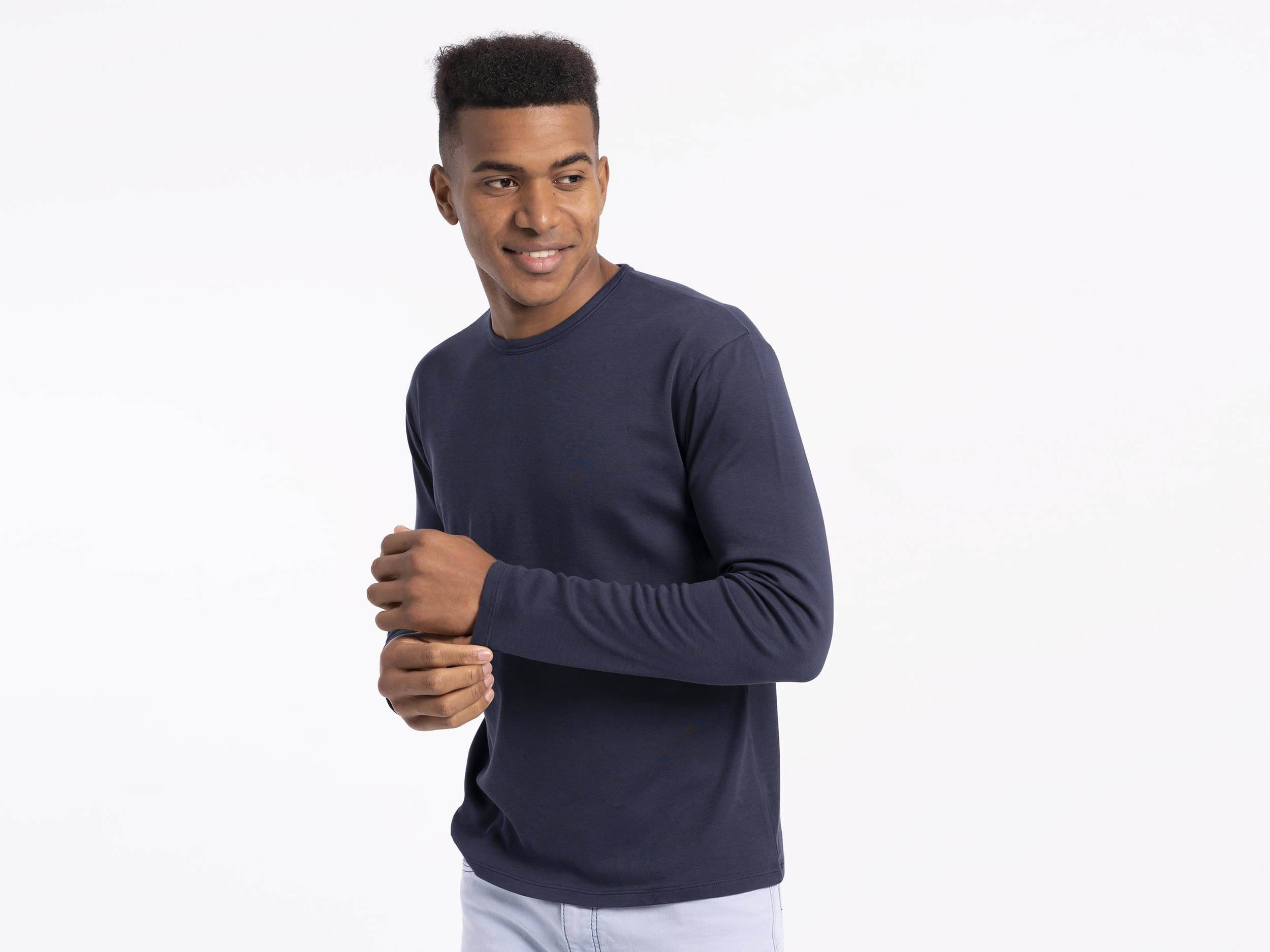Simple, Cotton, and Inspired
A reliable basic has never been more comfortable or environmentally conscious: AYA is a brand that uses organic pima cotton that is more resistant to pilling and wrinkling than other cottons, providing your trusty tee with an extra bit of love and attention. Even more, this brand has an in-depth approach to sustainability all located on their website. Whether it’s underwear, dresses, bottoms, or shirts, this brand covers all the essentials that your skin will love.
Check out this interview to learn more:
Why did you start AYA?
Image via AYA
My brother and I launched AYA at the beginning of 2022 with the goal to make a 100% plastic-free clothing brand made from the highest quality, natural fibers: Pima Cotton and Royal Alpaca Wool. Our mission for Aya is to make the most sustainable clothing free from chemicals and plastics while also teaching people what sustainable clothing really is.
How has growing up a first generation american influenced your work?
Image via AYA
Growing up with different cultures has opened my mind on how people live differently. For example, growing up in Los Angeles, I was raised in a completely different environment than my mother who grew up in the Andes of Peru. Learning about these different environments helped my brother and I create a business that adapts to the modern world while using the sustainable, traditional techniques of our Peruvian ancestors like natural dyeing.
Are there any ancestral influences in your clothing?
Our ancestor’s sustainable living is what influenced our clothing supply chain. They used alpaca wool, pima cotton (the softest cotton) and natural dyeing for their clothing. We have a natural dye collection and use only 100% royal alpaca wool and 100% organic pima cotton.
The founders, via AYA
Can you tell us more about your supply chain in peru?
Image via AYA
Our main raw material, pima cotton and alpaca wool, are native to Peru and we only use their fibers. We promote using only Peruvian fibers to bring more awareness to their fibers as well as their techniques. For example, Pima cotton is hand-picked and alpaca wool is mostly sheared by hand.
What is your vision for the fashion industry?
We hope to be leaders of it and change it completely. We want to give a real meaning to the word sustainability and teach the public what it means to have sustainable clothing.
We also want to bring awareness to the health and environmental issues from petroleum-based products including recycled polyester. We believe that with knowledge about the clothing production, more people will demand a change and we will see the change in the fashion industry.




